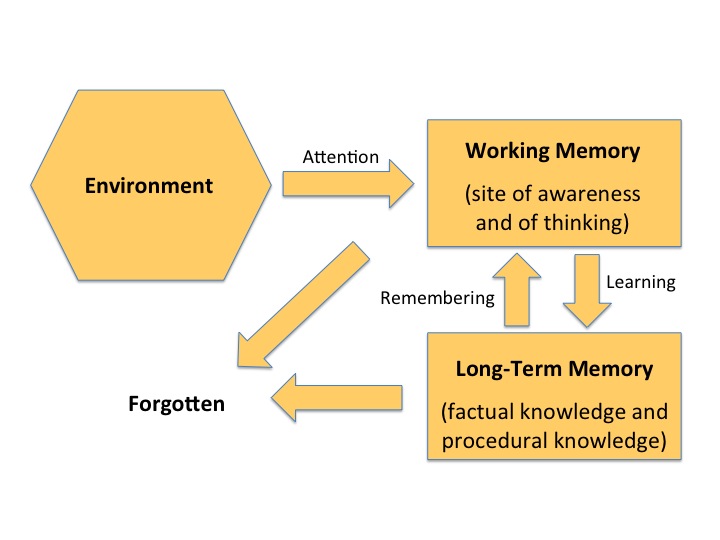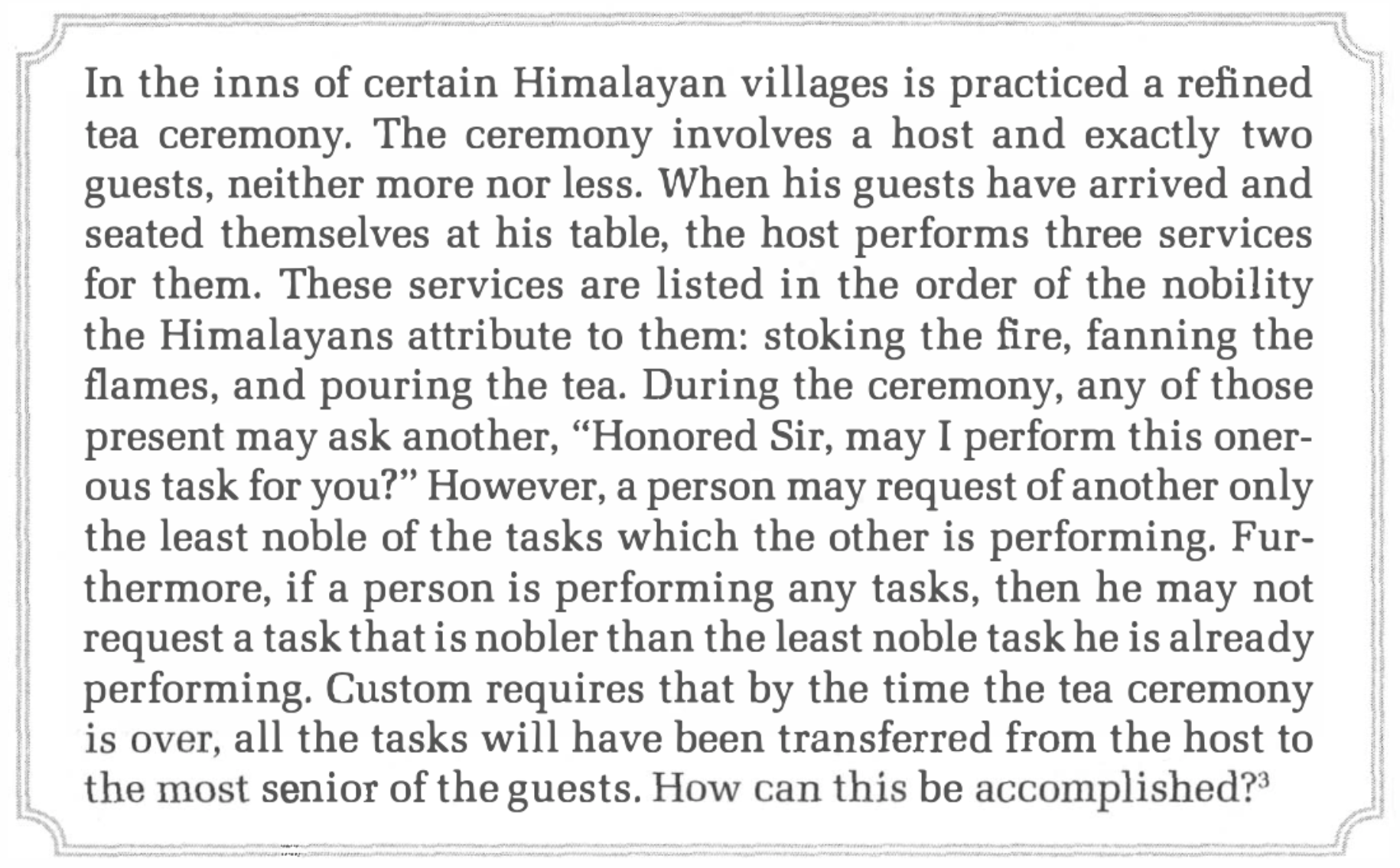01:00
How We Think
STAT 375 UC Berkeley
Agenda
- Reflections from teaching
- Curating attention
- The limits of working memory
- Concrete strategies
Reflections from Learning
Reflections from learning
Take a moment and jot down an example of a course that you took / lesson that you participated in that ignited your curiosity. Write down another example of a course / lesson where you were supremely incurious / disinterested / bored / disengaged.
What characteristics do identify in these two courses? Is your experience consistent with Willingham’s argument that curiosity is fostered through appropriately challenging questions?
Reflections from learning
Take a moment and jot down an example of a course that you took / lesson that you participated in that ignited your curiosity. Write down another example of a course / lesson where you were supremely incurious / disinterested / bored / disengaged.
What characteristics do identify in these two courses? Is your experience consistent with Willingham’s argument that curiosity is fostered through appropriately challenging questions?
10:00
Take homes from today
Foster curiosity with careful questions.
Curating attention
Model of Thinking

Source: Dan Willingham
Attention
Attention determines which aspects of our environment enter short term memory.
Class Questions
As a student, when / why have you become inattentive in class?
As a teacher, when / why have you misdirected student attention?
Siege of Breda
The siege of Breda of 1624–25 occurred during the Eighty Years’ War. The siege resulted in Breda, a Dutch fortified city, falling into the control of the Army of Flanders.
Following the orders of Ambrogio Spinola, Philip IV’s army laid siege to Breda in August 1624. The siege was contrary to the wishes of Philip IV’s government because of the already excessive burdens of the concurrent Eighty and Thirty Years’ wars. The strategically located city was heavily fortified and strongly defended by a large and well prepared garrison of 7,000 men, that the Dutch were confident would hold out long enough to wear down besiegers while awaiting a relief force to disrupt the siege.
Source: Wikipedia
Siege of Breda, cont.
Yet despite the Spanish government’s opposition to major sieges in the Low Countries and the obstacles confronting any attack on such a strongly fortified and defended city, Spinola launched his Breda campaign, rapidly blocking the city’s defences and driving off a Dutch relief army under the leadership of Maurice of Nassau that had attempted to cut off the Spanish army’s access to supplies.
The siege of Breda is considered Spinola’s greatest success and one of Spain’s last major victories in the Eighty Years’ War. The siege was part of a plan to isolate the Republic from its hinterland, and co-ordinated with Olivare’s naval war spearheaded by the Dunkirkers, to economically choke the Dutch Republic. Although political infighting hindered Spinola’s freedom of movement, Spain’s efforts in the Netherlands continued thereafter.
The Siege of Breda
- Where is Breda
- Netherlands
- Which two wars were going on at this time?
- Eighty Years War and Thirty Years War
- Who was the King of Spain in this era?
- Philip IV
- What is the name of the painting?
- The Surrender of Breda
- Why was the Siege of Breda important?
- Restored the pride and reputation of the Spanish army.
Curating Attention
Some tips:
- Visuals tend to override audio.
- What you omit is as important as what you include.
- Pick 1-3 take-homes and check that everything students see/hear ties back to them.
Did you read this slide or listen to it being read?
Take homes from today
Foster curiosity with careful questions.
As a teacher, you are a curator of attention.
The Limits of Working Memory
Model of Thinking

Source: Dan Willingham
Working Memory
Working Memory holds the information - from the environment and from long term memory - that that you can actively think about. Site of consciousness and awareness.
Chunking is the process of compressing several bits of information into a single bit.
😸❤️🍰Group Discussion
With your group, come up with a list of 5 strategies that help students chunk the information to make more room in working memory.
07:00
Example from the reading

01:00
Example from this class

Slides vs. Boardwork How does board work affect attention?
How does it affect cognitive load?
Take homes from today
Foster curiosity with careful questions.
As a teacher, you are a curator of attention.
Beat the limits of working memory by chunking.
Concrete Strategies
Concrete Strategies
Read through the handout and then with your group share two teaching strategies that you could see yourself using to guide attention and memory.
08:00
Take homes from today
Foster curiosity with careful questions.
As a teacher, you are a curator of attention.
Beat the limits of working memory by chunking.
